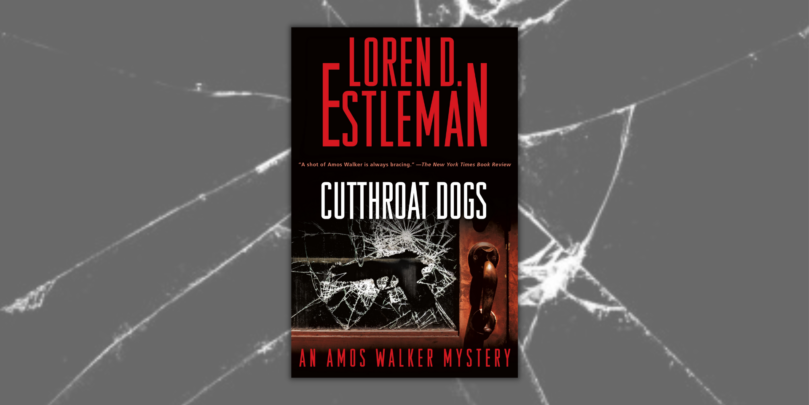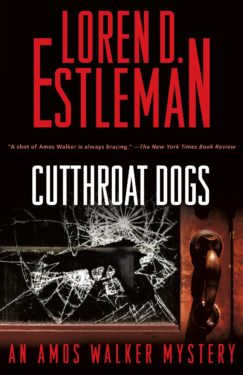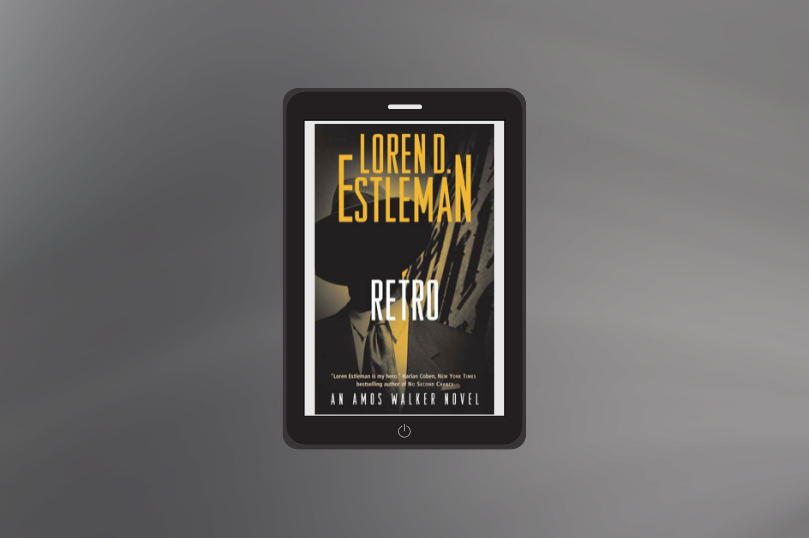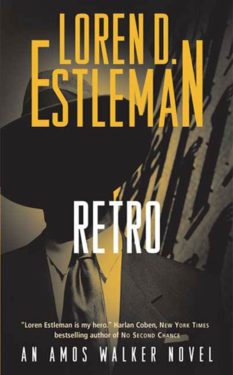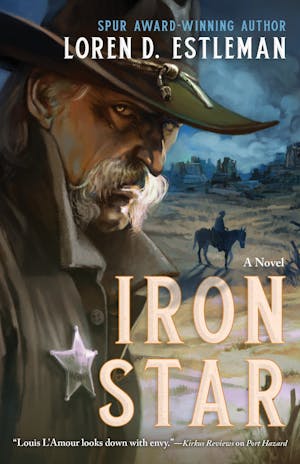 Set against the sprawling landscape of the Wild West, this riveting adventure by Spur Award-winning author Loren D. Estleman follows a man on a journey to set his legacy, and the men dedicated to bringing his story to life.
Set against the sprawling landscape of the Wild West, this riveting adventure by Spur Award-winning author Loren D. Estleman follows a man on a journey to set his legacy, and the men dedicated to bringing his story to life.
From his youth as a revolutionist to his time as a Deputy U.S. Marshal, aging lawman Iron St. John has become a larger-than-life figure—and in the process, the man has disappeared behind the myth. During his brief, unsuccessful political career, St. John published his memoirs—a sanitized version of his adventures to appeal to the masses. A generation later, the clouded truth of this giant of the Old West has been all but lost.
Now, Buck Jones, a pioneering film star, is vying for a cinematic story that will launch his career to incredible heights. He approaches Emmet Rawlings, a retired Pinkerton detective, to set the record of St. John’s life straight once and for all. Twenty years ago, Rawlings accompanied St. John on his final manhunt, and in desperate need for the funding a successful book promises, he dives deep into St. John’s past—and his own buried memories—to tell the truth about this part-time hero.
As the story of St. John unfolds, the romance of the period is stripped away to reveal a reality long-forgotten in this unvarnished, heart-racing depiction of the American West by acclaimed author Loren D. Estleman.
Iron Star will be available on June 18th, 2024. Please enjoy the following excerpt!
CHAPTER ONE
MISTER ST. JOHN
Everything about the messenger seemed smart, from the peaked cap squared across his brow to the polished toes of his boots, right down to the smug cast of his mouth. Rawlings signed for the package he brought and handed back the clipboard; and bless the man if he didn’t snap him a salute. He shut the door on the pink clean-shaven face and went to his desk for the knife that was too big for its purpose.
The cord severed, he removed two layers of brown paper and looked at the book. A phantom pain struck his side.
The book was standard octavo size but heavy as a brick, coarse brittle pages bound in green cloth with a surplus of stamping on cover and spine and the kind of lettering one found in soap advertisements. A balloon legend at the top descended in graded diminuendo until the second-to-last line, which was set out boldly in copper leaf:
THE IRON STAR
Being a Memoir of IRONS ST. JOHN Deputy U.S. Marshal
Peace Officer
Railroad Detective Trail-blazer
And
CANDIDATE FOR U.S. CONGRESS
by Himself
The educated reader might have added Reformed Outlaw to the list of sobriquets—with a Christian nod to the “Reformed”—but the object of the tome had been to elect, not repent. In fact it had managed to do neither, thus setting in motion the cosmic chain of events that had pulled Rawlings into his orbit.
Another stab came when he opened to the frontispiece, a three-quarter photographic portrait of a man past his middle years. It was contemporary to his experience of the original, although the developers’ art had tightened the sagging lines of the chin: a rectangular face set off by cheekbones that threatened to pierce the flesh and a thick moustache whose points reached nearly to the corners of the jaw. The eyes had been retouched as well, but less to flatter the subject than to keep them from washing out in the glare from the flashpan; irises that particular shade of sunned steel did not reproduce. The hair was cut to the shape of the skull and swept across the forehead; that feature, Rawlings thought, had not been tampered with. In all the weeks he’d spent with the man—seldom more than six feet away—he could barely recall having seen him with his hat off: Cavalry campaign issue, it was, stained black around the base of the dimpled crown, with the tassel missing a toggle.
It was like finding an old ogre of a dead uncle standing on his doorstep.
The book carried a 1906 copyright date and the name of a St. Louis publisher. He touched the page, as if feeling the figures pressed into paper would contradict the evidence of sight, and also of scent; the leaves smelled of dust and decomposition.
Twenty years.
He was fifty, the same age St. John had been then, when the man had seemed as weatherworn as the Red Wall of Wyoming.
The old humbug.
But, no; that was unfair. You didn’t mark down a man’s accomplishments just because he never missed an opportunity to remind you of them. He’d been a politician after all, however briefly and unsuccessfully, and that wound had yet to heal. Was he so easily dismissed as less than advertised? Truth to tell, constant exposure for nearly a month to any fellow creature outdoors in all extremes of weather would turn an Ivanhoe into a Uriah Heep. There were no heroes in a cold camp.
He turned to the first page of the editor’s preface. (“Nothing in little Ike’s childhood bore witness to the man he would become.”) Tucked in the seam between the sawtooth sheets was a cardboard rectangle, glaringly white against the ivory pulp, with glossy black embossed printing in eleven-point type:
Charles Gebhardt, Esq.
The card contained neither address nor telephone number: a proper gentleman’s calling card, an anomaly there, amidst the oat and barley fields of southeastern Minnesota.
Likewise there was no return address on the wrapper, and no postmark, since it had been sent by private messenger; nothing to explain its origin apart from the unfamiliar name on the card, which may have been nothing other than a bookmark employed by a former owner. The book was sufficiently shopworn to have passed from hand to hand, eventually to settle in a clearance bin, the last stop before the pulp mill. No provenance, and not an inkling as to purpose.
But he was still enough of a detective not to waste time pursuing a line of reasoning that offered no beginning and promised no end. He laid aside the book and took a seat in the wooden armchair that had come with the room, at the leftward-listing rolltop that had come with it, and turned back a cuff to measure his pulse against his watch.
After fifteen seconds he took his fingers from his wrist, replaced the cuff, fixed the stud, and entered the figure in the notebook he kept in a pigeonhole.
Not too rapid, considering; but on the other hand his heart wasn’t likely to finish out of the money at the Olmsted County Fair. He snapped shut the face of the watch, glancing from habit at the engraving but without reading: to emmett force rawlings, in grateful, etc., robt. pinkerton ii, and returned it to his waistcoat pocket, where the weight of the gold plate tugged the unbuttoned garment uncomfortably off-center. He fastened the buttons.
From the right drawer he lifted a stack of yellow paper and reread what he’d written in the same small, precise hand he’d employed while waiting out his retirement in the records room in San Francisco. He reread it from the beginning as always, scratching out passages that struck him as prosy and inserting additional information in the margins, which he’d left wide for the purpose. The Chief had often said that if he ever tired of the field he could apply for a post in bookkeeping; after the Buckner debacle the remark had seemed not so much a compliment as a threat.
He caught himself stroking his chin; there’d been no beard there for years. That blasted book had sidetracked him. One of the reasons he’d started this comprehensive history of the Agency was to expel the nattering memories of his past, as well as to audit the account.
The Wild West: No grand exposition, that: rather a roadside carnival. Hundreds of hacks had squandered tons of paper and gallons of ink on midnight rides and gunplay; which, if one were to lift them from the record, would have no effect on how it had come out. Dakota would have been divided, the Indian question resolved, and the frontier closed regardless of which side emerged intact from the O.K. Corral fight, whether William Bonney was slain from ambush or escaped to old Mexico, or if Buffalo Bill had chosen black tie and tails over feathers and buckskin. Washington was the big top, Tombstone and Deadwood a sideshow at best. Historians were crows, hopping over treasure to snatch up bright scraps of tin and deposit them at the feet of spectators who— thanks to them—would never know the difference.
His face ached; the scowl might have set permanently but for the interruption of a tap on his door. He shoved himself away from the desk and got up to answer it.
“A gentleman to see you, sir.” Mrs. Balfour, his landlady, extended a card in a large hand with veins on the back as thick as a man’s. She was a tall Scot who held her hair fast with glittering pins and kept snuff in a hinged locket around her neck.
He took the card, read again the name Charles Gebhardt, Esq. “I don’t suppose he said what he wants.”
“No, sir, and it wasn’t my business to ask.”
In truth he couldn’t imagine what circumstances would lead this woman to ask any sort of question, including whether she should allow the man up. They exchanged meaningless nods and she went back downstairs.
He remained in the doorway while the visitor ascended the last flight. At the top they stood not quite face to face; the man was two inches shorter and thicker in the torso, with a nose straight as a plumb and big ears that stuck out like spread clamshells. His smile was broad as well, overabundantly friendly, and furnished with teeth too white and even for trust: a salesman’s smile. Larger-than-life features on a larger-than-life head. They belonged on a billboard.
The hat was wrong: a tweed motoring cap, worn at an angle after the current fashion, taking up too little space in relation to the head; and now that Rawlings had identified the problem, he realized where he’d seen the man, or at least his image, painted in crude brush strokes reproduced in lithograph: a muscular frame in blue denim, plaid flannel, and yellow kerchief, dangling from the face of a cliff or a railroad boxcar plummeting down a steep grade with no train attached. Perhaps both. Wearing the hat, too big just to provide shade and too small for a fire pit.
“Mr. Rawlings?” A pleasant enough voice, a tenor, with a hint of the stage.
“Mr.—Gebhardt?” The name was as unlikely a fit as the headgear.
The smile flickered. “Yes; but that’s just between you, me, and the Bureau of Internal Revenue. Professionally it’s Buck Jones, and I’ve come all this way from Los Angeles to ask if you’d consider making a movie with me.”
Click below to pre-order your copy of Iron Star, available June 18th, 2024!







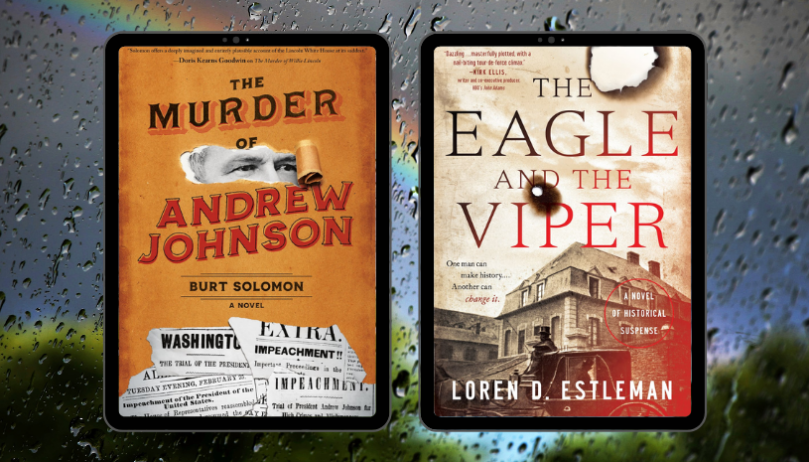
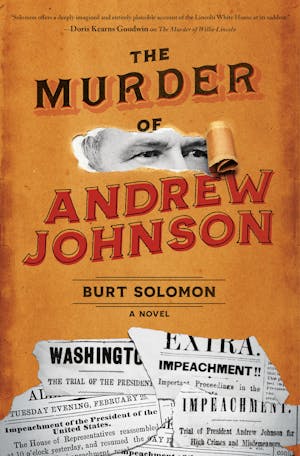
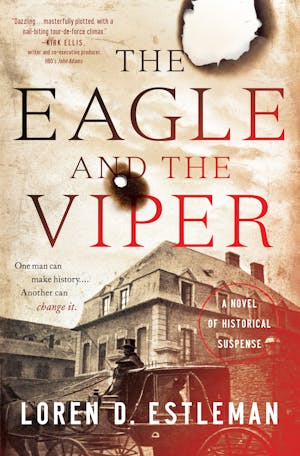
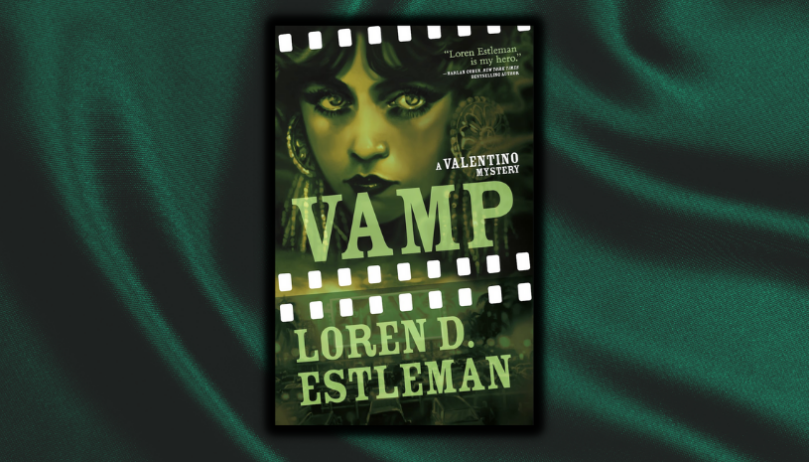
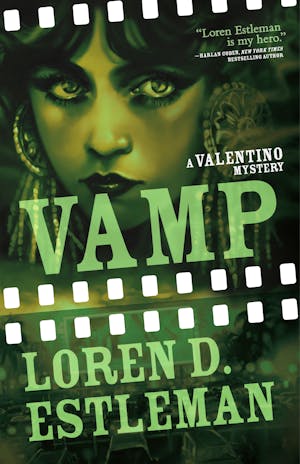
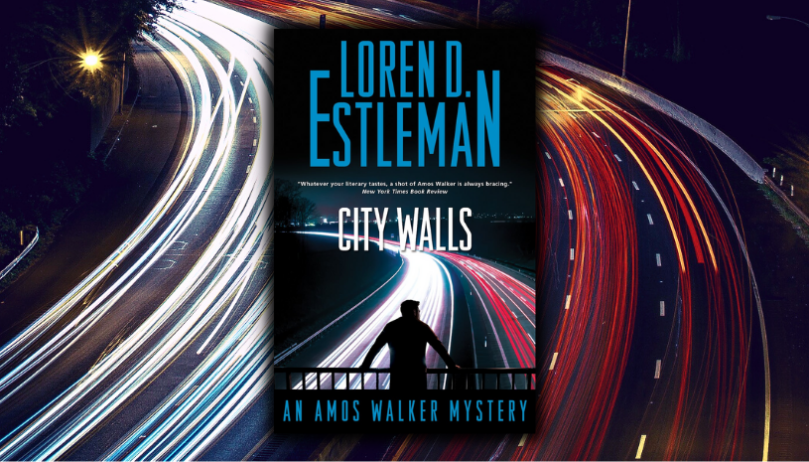


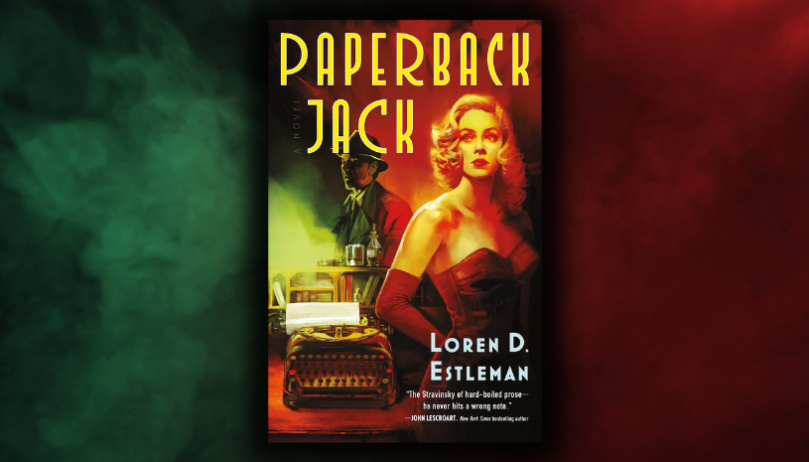
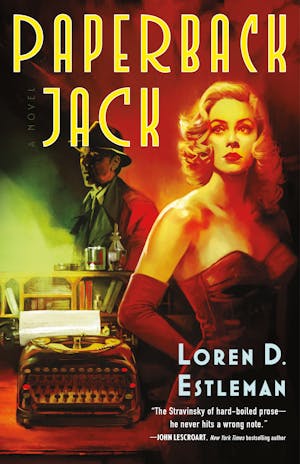
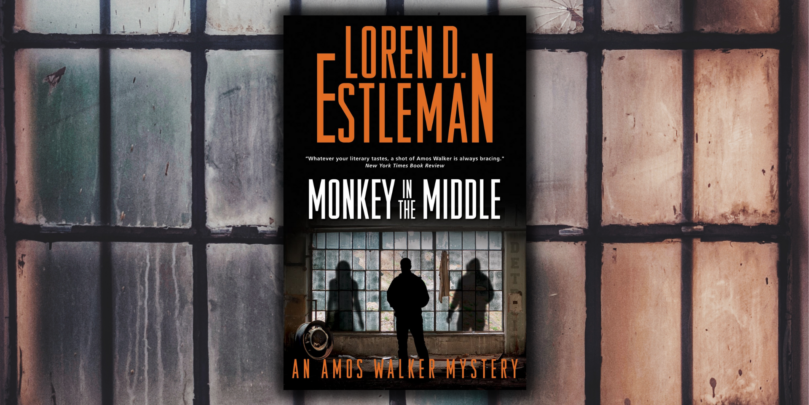
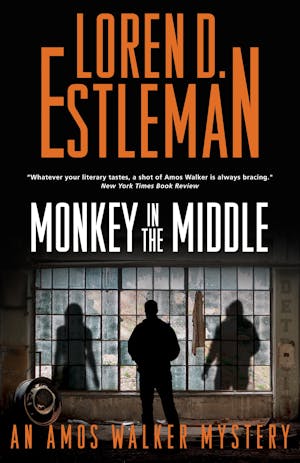
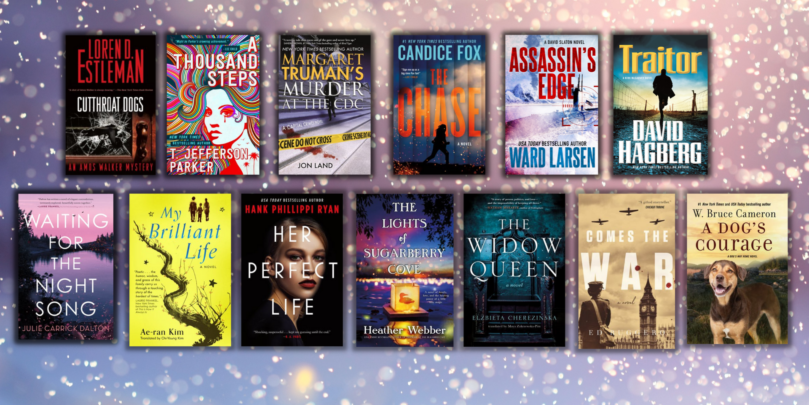
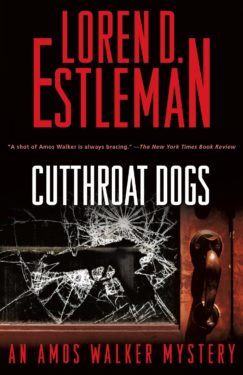 “Someone is dead who shouldn’t be, and the wrong man is in prison.”
“Someone is dead who shouldn’t be, and the wrong man is in prison.”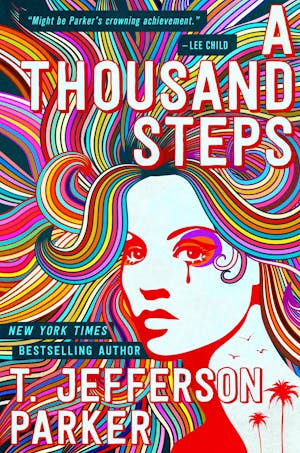 Laguna Beach, California, 1968. The Age of Aquarius is in full swing. Timothy Leary is a rock star. LSD is God. Folks from all over are flocking to Laguna, seeking peace, love, and enlightenment.
Laguna Beach, California, 1968. The Age of Aquarius is in full swing. Timothy Leary is a rock star. LSD is God. Folks from all over are flocking to Laguna, seeking peace, love, and enlightenment. 2017: A military transport on a secret run to dispose of its deadly contents vanishes without a trace.
2017: A military transport on a secret run to dispose of its deadly contents vanishes without a trace.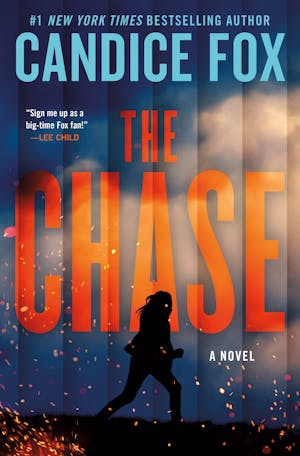
 Cadie Kessler has spent decades trying to cover up one truth. One moment. But deep down, didn’t she always know her secret would surface?
Cadie Kessler has spent decades trying to cover up one truth. One moment. But deep down, didn’t she always know her secret would surface? Areum lives life to its fullest, vicariously through the stories of his parents, conversations with Little Grandpa Jang—his sixty-year-old neighbor and best friend—and through the books he reads to visit the places he would otherwise never see.
Areum lives life to its fullest, vicariously through the stories of his parents, conversations with Little Grandpa Jang—his sixty-year-old neighbor and best friend—and through the books he reads to visit the places he would otherwise never see. Everyone knows Lily Atwood—and that may be her biggest problem. The beloved television reporter has it all—fame, fortune, Emmys, an adorable seven-year-old daughter, and the hashtag her loving fans created: #PerfectLily. To keep it, all she has to do is protect one life-changing secret.
Everyone knows Lily Atwood—and that may be her biggest problem. The beloved television reporter has it all—fame, fortune, Emmys, an adorable seven-year-old daughter, and the hashtag her loving fans created: #PerfectLily. To keep it, all she has to do is protect one life-changing secret. Sadie Way Scott has been avoiding her family and hometown of Sugarberry Cove, Alabama, since she nearly drowned in the lake just outside her mother’s B&B. Eight years later, Sadie is the host of a much-loved show about southern cooking and family, but despite her success, she wonders why she was saved. What is she supposed to do?
Sadie Way Scott has been avoiding her family and hometown of Sugarberry Cove, Alabama, since she nearly drowned in the lake just outside her mother’s B&B. Eight years later, Sadie is the host of a much-loved show about southern cooking and family, but despite her success, she wonders why she was saved. What is she supposed to do?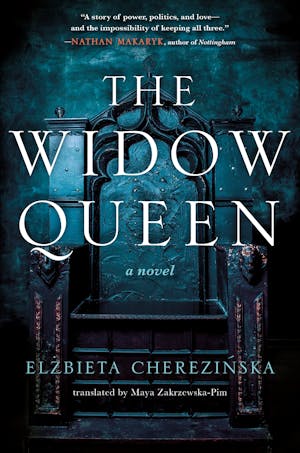 The bold one, they call her—too bold for most.
The bold one, they call her—too bold for most. April 1944, the fifty-fifth month of the war in Europe. The entire island of Britain fairly buzzes with the coiled energy of a million men poised to leap the Channel to France, the first, riskiest step in the Allies’ long slog to the heart of Germany and the end of the war.
April 1944, the fifty-fifth month of the war in Europe. The entire island of Britain fairly buzzes with the coiled energy of a million men poised to leap the Channel to France, the first, riskiest step in the Allies’ long slog to the heart of Germany and the end of the war. Bella was once a lost dog, but now she lives happily with her people, Lucas and Olivia, only occasionally recalling the hardships in her past. Then a weekend camping trip turns into a harrowing struggle for survival when the Rocky Mountains are engulfed by the biggest wildfire in American history. The raging inferno separates Bella from her people and she is lost once more.
Bella was once a lost dog, but now she lives happily with her people, Lucas and Olivia, only occasionally recalling the hardships in her past. Then a weekend camping trip turns into a harrowing struggle for survival when the Rocky Mountains are engulfed by the biggest wildfire in American history. The raging inferno separates Bella from her people and she is lost once more.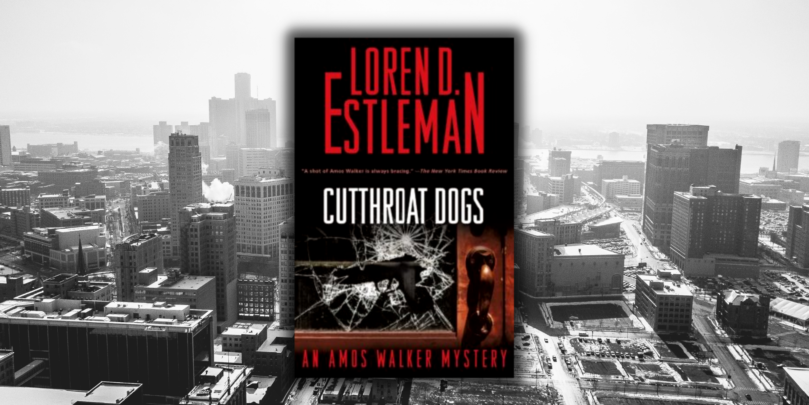
 A hard-boiled detective in a hard-boiled town, Amos Walker and the city of Detroit are two unforgettable characters from thriller master, Loren D. Estleman. The irreverent, salt-of-the-earth voice of Amos provides the perfect narration for the blue-collar milieu of the Motor City. Estleman has Amos deftly moving from the crumbling splendor of downtown to the suburban mansions of Grosse Pointe with surprises at every turn.
A hard-boiled detective in a hard-boiled town, Amos Walker and the city of Detroit are two unforgettable characters from thriller master, Loren D. Estleman. The irreverent, salt-of-the-earth voice of Amos provides the perfect narration for the blue-collar milieu of the Motor City. Estleman has Amos deftly moving from the crumbling splendor of downtown to the suburban mansions of Grosse Pointe with surprises at every turn. The grit and glamour of Los Angeles make it a classic setting for a detective novel. No one knows that better than Rachel Howzell Hall, whose protagonist Detective Elouise “Lou” Norton, features in books like
The grit and glamour of Los Angeles make it a classic setting for a detective novel. No one knows that better than Rachel Howzell Hall, whose protagonist Detective Elouise “Lou” Norton, features in books like 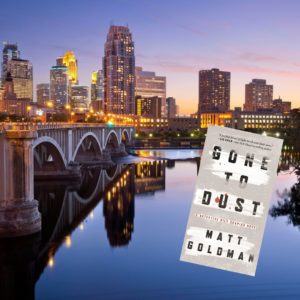 Leave it to Nils Shapiro to find the dark side of Minnesota Nice. The star of Matt Goldman’s series featuring titles like
Leave it to Nils Shapiro to find the dark side of Minnesota Nice. The star of Matt Goldman’s series featuring titles like 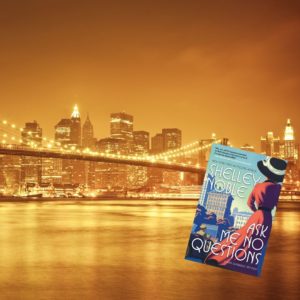 Readers looking for a historical city tour will do well to discover the Lady Dunbridge series by Shelley Noble, featuring titles like
Readers looking for a historical city tour will do well to discover the Lady Dunbridge series by Shelley Noble, featuring titles like  Who better to provide an inside look at the nation’s capital than the president’s daughter? Margaret Truman did just that in her Capital Crimes series. Featuring P.I. Robert Brixton, the series continues with acclaimed thriller writer Jon Land taking the helm of titles like
Who better to provide an inside look at the nation’s capital than the president’s daughter? Margaret Truman did just that in her Capital Crimes series. Featuring P.I. Robert Brixton, the series continues with acclaimed thriller writer Jon Land taking the helm of titles like 